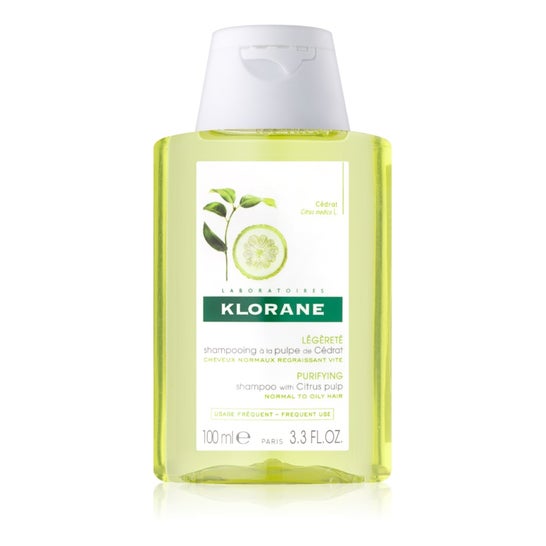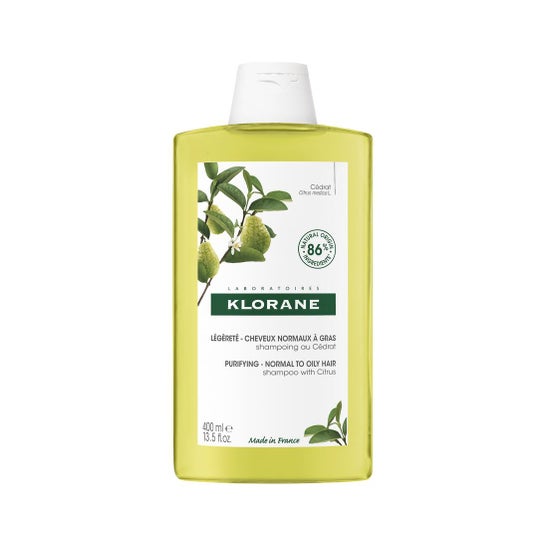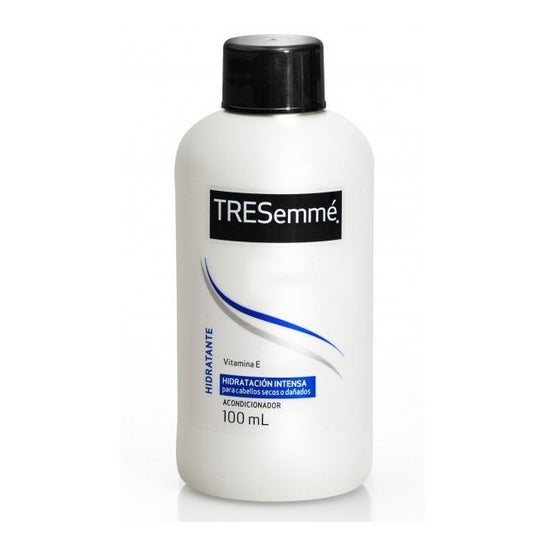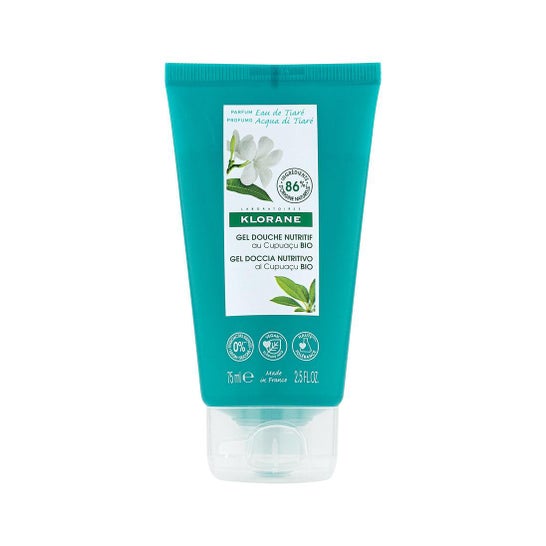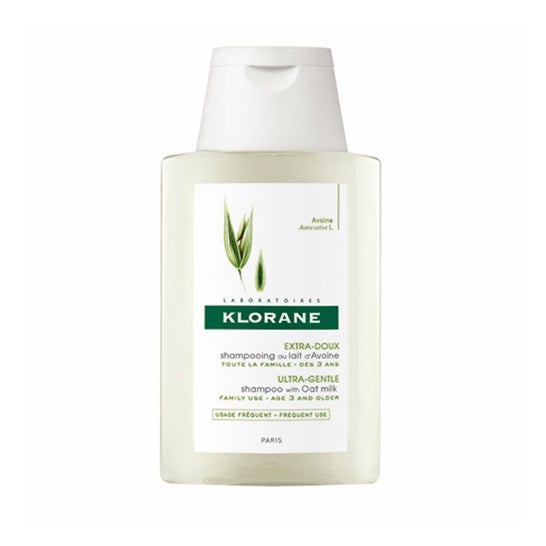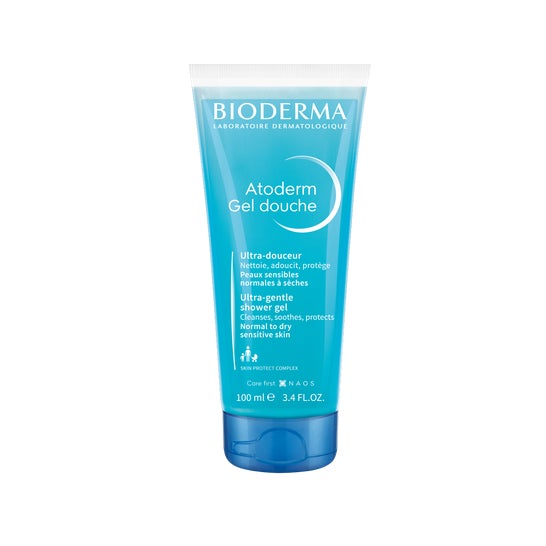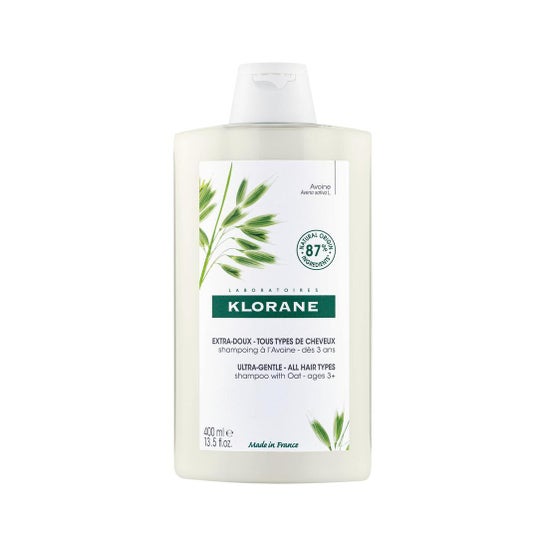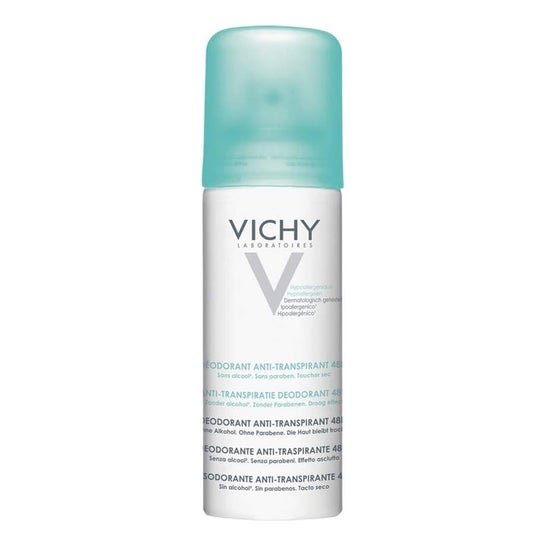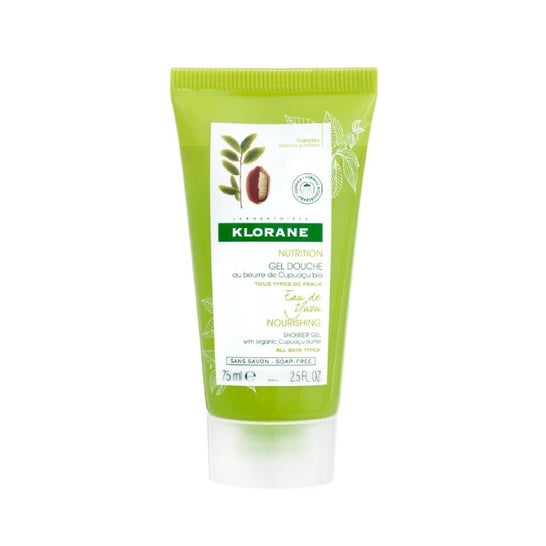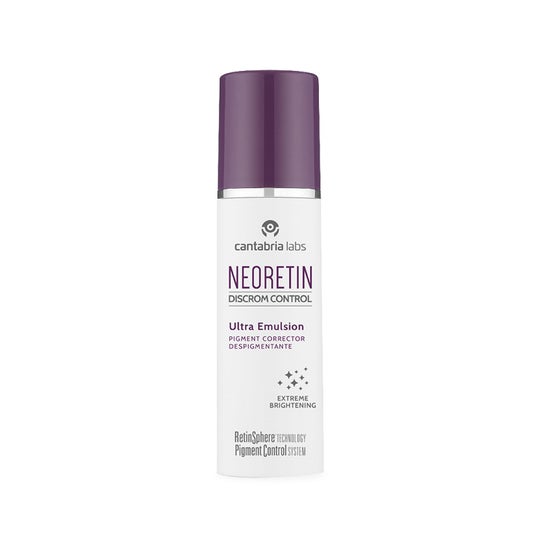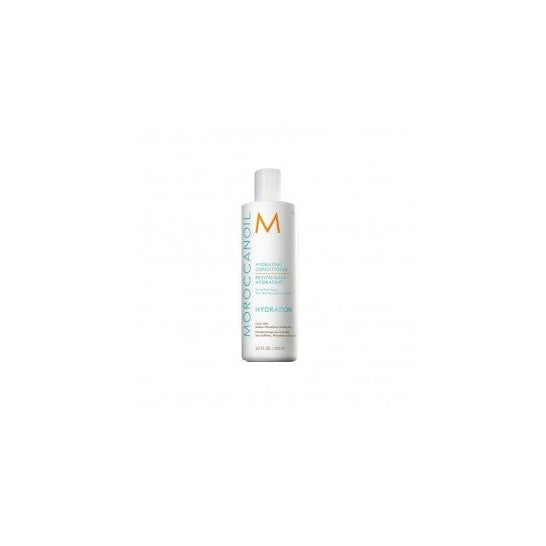Klorane shampoo cdrat 100ml
Description
Composition
Aqua, Sodium Lauryl Sulfate, Sodium Cocoamphodiacetate, Glycolic Acid, Triethanolamine, Propylene Glycol, Diacyl Glucoside, Benzoic Acid, Copper Chlorophyllin Complex (CI 75810), Citrus Medica Vulgaris Fruit Extract, Disodium EDTA, Fragrance, Glutamic Acid, Panthenol, Polyquaternium-10, Sodium Chloride, Sodium Hydroxide, Yellow 5 (CI 19140).
Price per 100 ML
Pharmaceutical Advice
Glycolic acid is an alpha hydroxy acid (AHA) obtained from sugar cane. Its molecules are so small that they penetrate the deeper layers of the skin, stimulating collagen synthesis and moisturising substances such as hyaluronic acid. But it is mainly known for its action to improve skin micro-relief (skin texture and luminosity), as it can exfoliate at a more superficial level (on the stratum corneum).
In cosmetic products, depending on the concentration, as well as the combination with other ingredients, a moisturising effect may predominate (the lower the concentration of glycolic acid) or exfoliating effect (at higher concentrations). This concentration range can go from 4% to 20%. Choosing a type of cosmetic formula with glycolic acid will depend on the desired objective and skin sensitivity. For example, higher concentrations are usually found in intensive products for weekly application: with a deeper effect, in treatments to combat hyperpigmentation, wrinkles and/or comedones. They will release more superficial corneocytes (cells), which will be eliminated and promote skin renewal.
When starting to use it or looking for better tolerance, daily use products with a lower concentration will provide renewal, brightness and hydration to the skin. In addition to all these properties, it can also improve acne lesions, blackheads and blemishes.
As in any routine, but especially when using this type of renewing ingredients, daily sun protection is essential. I do not recommend starting to use glycolic acid with other acidic or irritating ingredients. After application, a slight stinging sensation may appear, which quickly subsides and will subside progressively. If the discomfort persists, it means that the product is not suitable or that your skin cannot tolerate it. It is important to receive good dermo-cosmetic advice to find a routine adapted to your skin type and your needs.
RELATED SEARCHES ABOUT Shampoo
- Dyes
- Accessories
- Conditioner
- Treatment
- Mask
- Anti-hair loss
- Hair gel
- Lotion
- Serum
- Leave-in conditioner
New in Hair
- Jaldes Silettum Fortifying Shampoo 200ml
- Jaldes Silettum Anti-Hair Loss Shampoo 200ml
- Ecophane Fort Champú Fortificante 2x200ml
- Phyto Curls Champú Hidratación Rizos 250ml
- Phyto Curls Crema Acondicionador Hidratación Rizos 175ml
- Phyto Elixir Aceite Cuidado Nutrición Absoluta Pre-Champú 100ml
- Schwarzkopf Gliss Balm For Shiny Hair 200ml
- Redken Shades Eq Gloss Color Bonder Inside 05G 60ml
- René Furterer Neopur Champú Caspa Grasa 150ml + Head Spa Scrub Exfoliante 150ml
- René Furterer Neopur Champú Caspa Seca 150ml + Head Spa Scrub Exfoliante 150ml



